Developing emotional intelligence – how can museums help teachers?
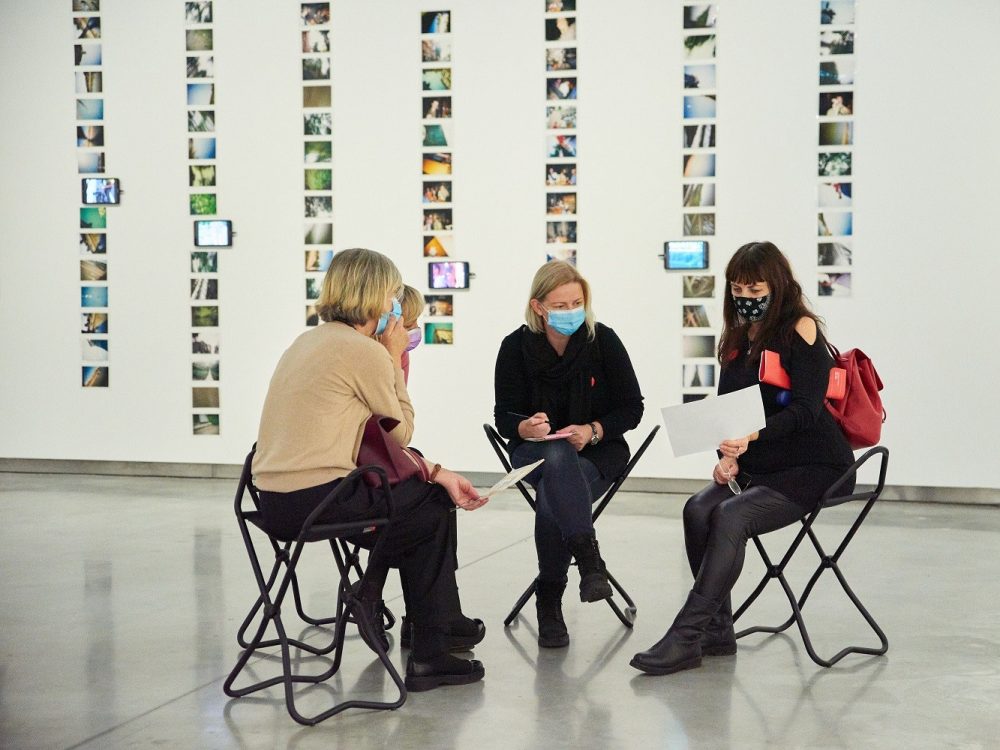
Almost 500 Lithuanian teachers were interested and participated in a special conference for teachers organized by MO Museum. This time the focus – emotional and mental health of the students, and the opportunities created by the museum to help nurture it. We also revealed our next year’s news to Lithuanian teachers – a unique program of the Travelling Museum.
This year, paying special attention to emotional and mental health, together with Lithuanian teachers, we analysed how to develop emotional literacy from an early age.
Why is it important to focus on children’s emotional intelligence, what challenges teachers face, and how art can help them recognise and talk about emotions?
Cultural experiences cultivate a sense of meaning
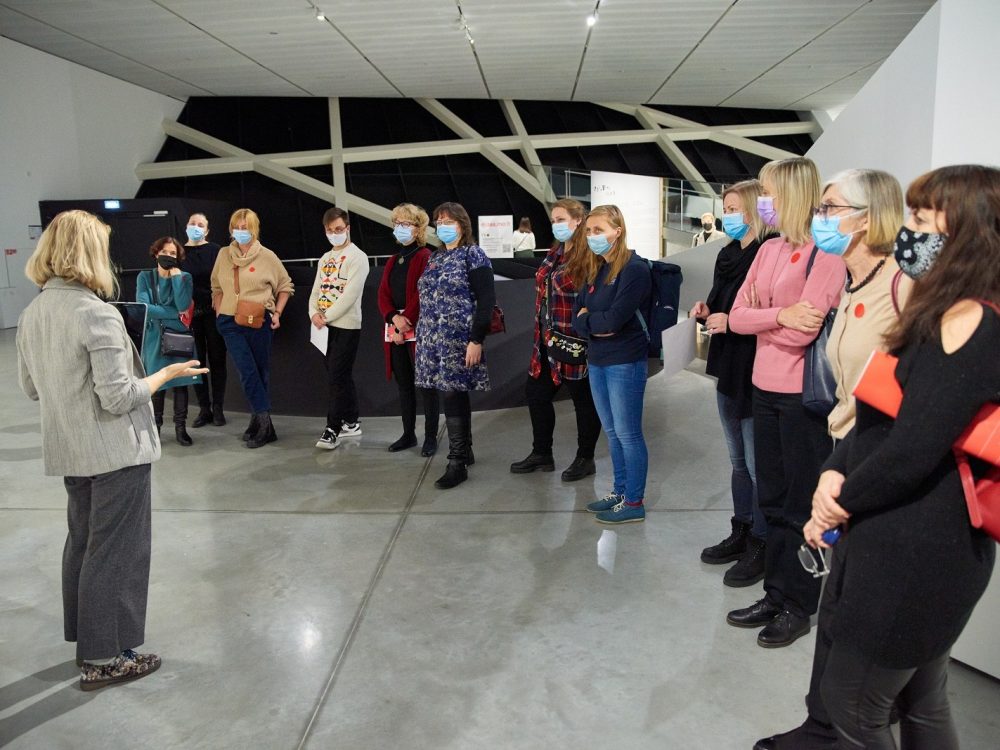
“Recent years have shown how important it is to nurture mental and emotional well-being. You need to do this from an early age. We want teachers to see the museum as a space where they can talk to children about things that are important to them. Art can become a way to discuss different topics with students of all ages,” says Jurgita Zigmantė, MO Education Manager, who organised the conference.
She also shares the insights of last year’s survey of public satisfaction regarding culture – children with cultural experiences have a greater sense of self-satisfaction and meaningfulness as they grow up and can better integrate into society. This is also noticed by the teachers who attended the conference.
How can a museum contribute to the development of self-knowledge, communication and collaboration skills, what opportunities and pathways open up for teachers? Psychologist Simona Košinskaitė, neuroscientist Emilė Radytė, MO educator Evelina Jokštė and MO Museum partners from Iceland developed these topics together with Lithuanian teachers in various discussions.

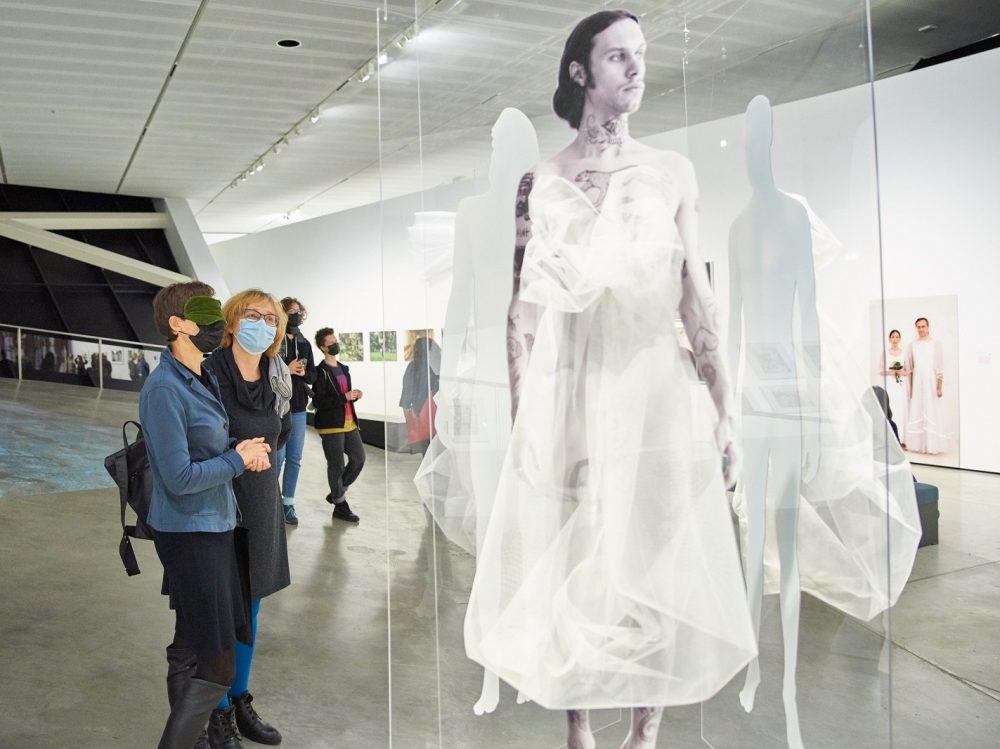
Development of social and emotional skills

Going to another space – a museum – is an opportunity to meaningfully spend an hour of class time, and to develop social and emotional competencies.
As psychologist Simona Košinskaitė observes: “MO education combines art and development of various skills. By observing, discussing and debating artworks, performing tasks and playing, students have the opportunity to develop their social and emotional skills. It is also a great opportunity to rethink the experience when the students return to class: what I understood, what I learned, what I would like to experience.”
The fact that works of art become a starting point for talking about relevant topics with children of all ages is also confirmed by MO educator Evelina Jokštė.
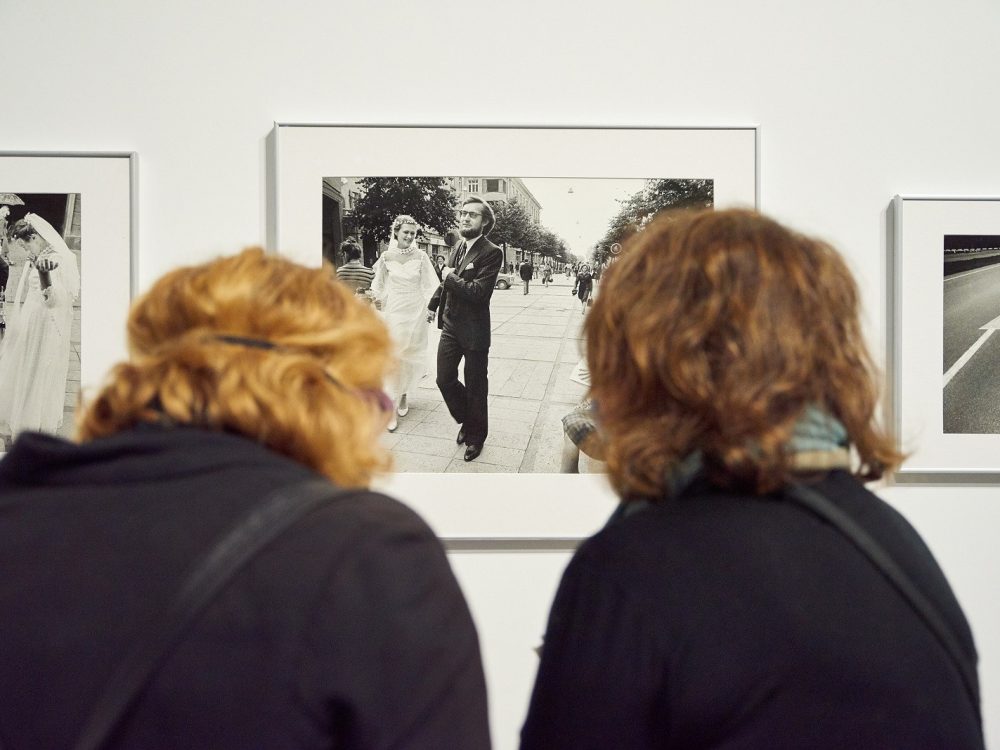
“Art acts as a mediator that invites us to talk about personal things. Children, when talking about the emotions experienced by the characters in the artworks, combine this with personal emotional experiences. By freely thinking about art, depicting emotions in their body language, children reveal how they see the world, what is important to them, what relationships they see in their environment,” says E. Jokštė.

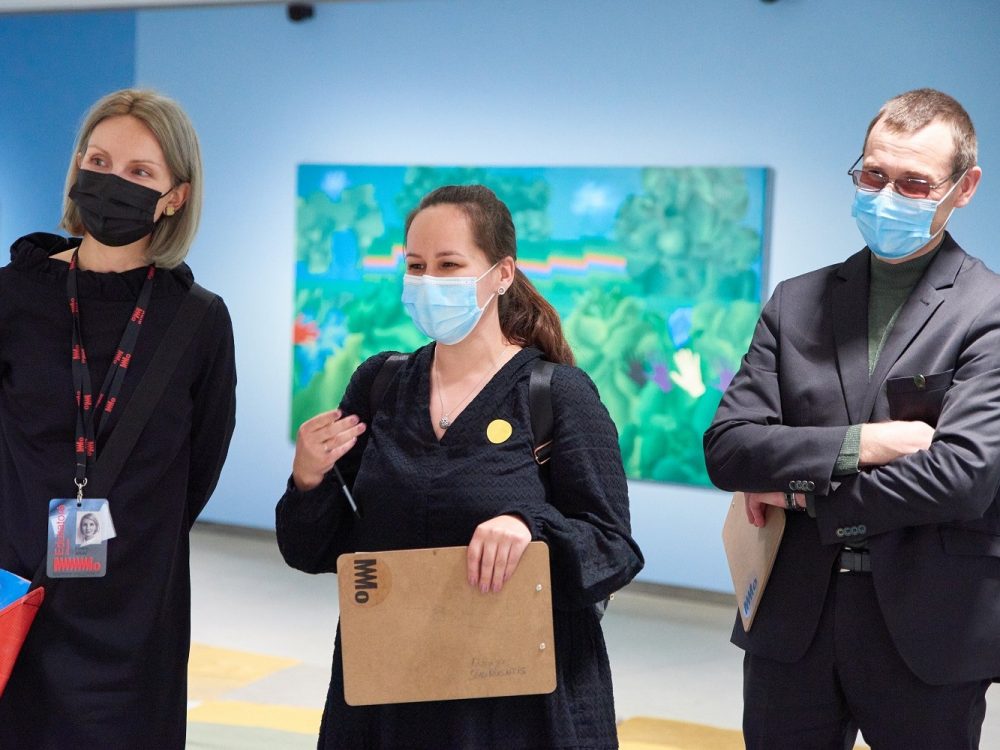
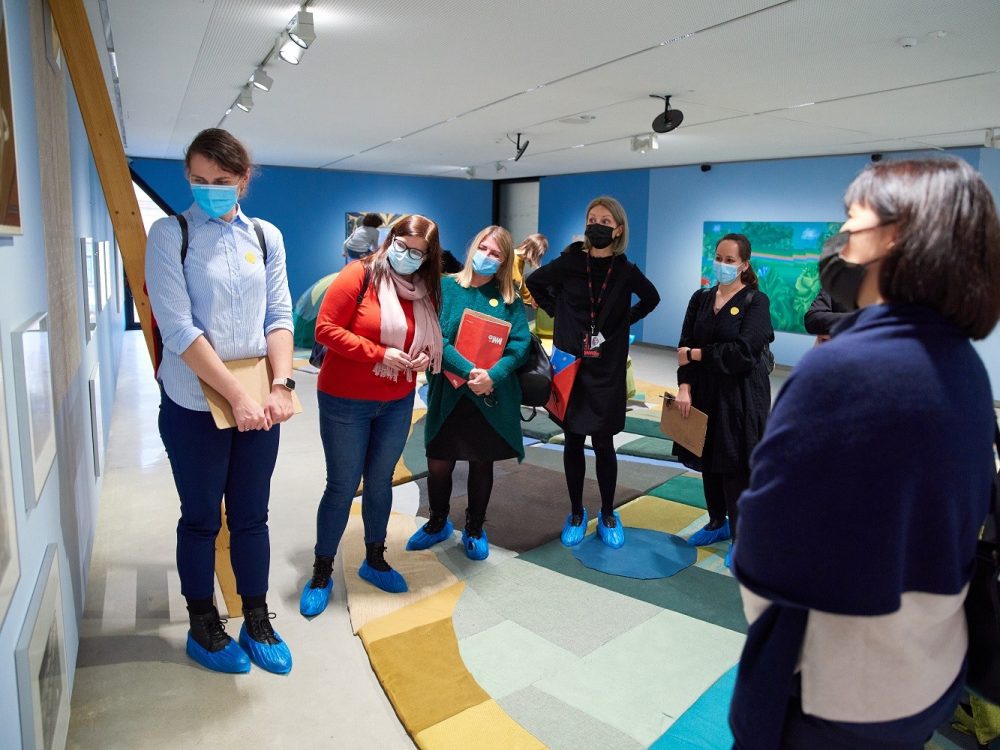
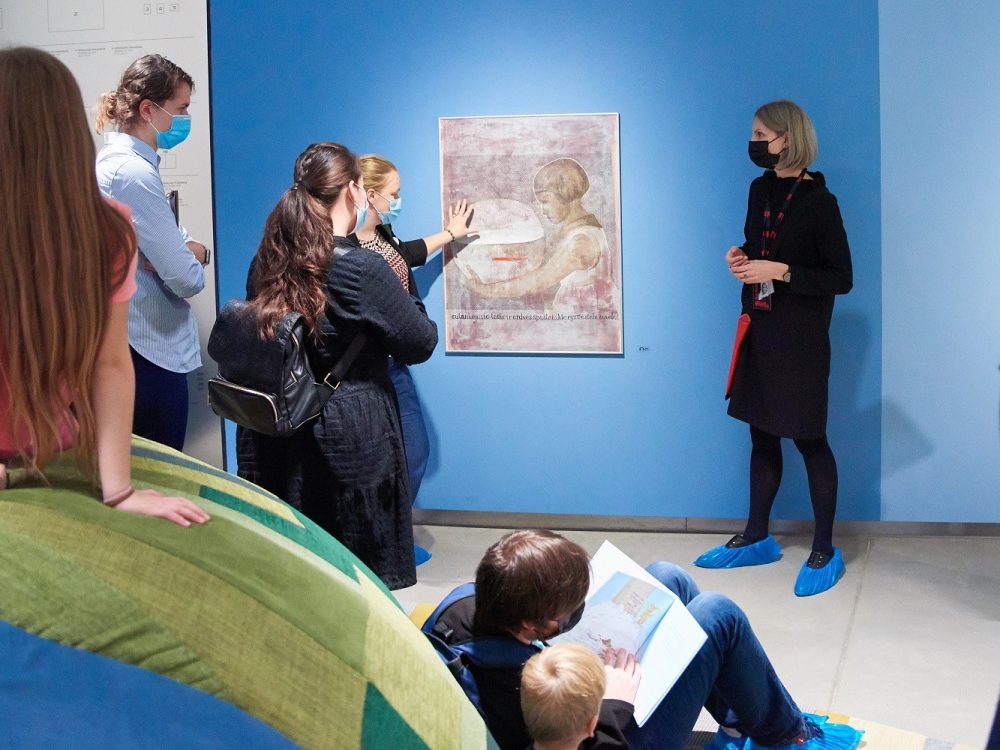
Different stages of brain development – different perceptions of the environment

Emilė Radytė, a specialist in neuroscience and anthropology, introduced teachers to the brain development of growing children.
“Growing children experience different stages of brain development. Children up to the age of 2 know and think by analyzing the properties of things, then up to the age of 7 their symbolic thinking begins to form, they understand and identify various properties of things even if they do not necessarily see them. Children aged 7–12 start thinking logically, and from the age of 12 – a period of abstract thinking takes place,” says E. Radytė, doctoral student in neuropsychiatry at Oxford University.
E. Radytė also adds that every child can experience these periods at a slightly different age. However, teachers or parents, knowing about this, can discover ways to present subjects to children in an understandable and relevant way.
Next year – Traveling Museum, special education and training
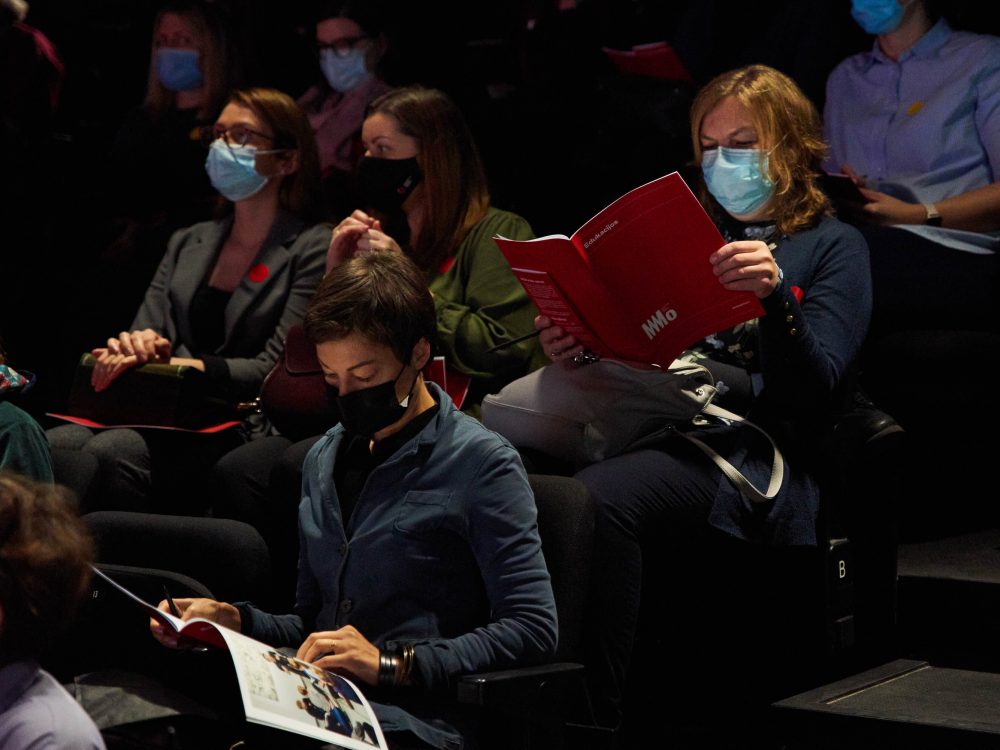
Lithuanian teachers were the first to hear the news of MO Museum – next year, as many as 8 Lithuanian cities will be visited by the MO project “Traveling Museum: Get to Know Yourself through Art”. We will visit Marijampolė, Biržai, Šalčininkai, Druskininkai, Antalieptė, Naujoji Akmenė, Molėtai and Šilutė with a special exhibition, educational and training program.
From April 2022, a specially selected adaptation of MO photography exhibition “Celebrate for Change” will travel through different locations. There will also be Family Sunday activities for the whole family, educational classes for children and training for teachers and cultural workers. We are developing the entire cultural education program in cooperation with partners: the Reykjavik Art Museum and the Museum of Everyday Life in Iceland.
MO Museum’s project “Traveling Museum: Get to Know Yourself through Art” is implemented under the European Economic Area and Norwegian Financial Mechanisms Instrument “Development of Cultural Accessibility and Strengthening Cultural Education”.

Relevant topics for teachers every year
The conference for teachers at MO Museum is an annual tradition. This event is open to all Lithuanian teachers who have joined the MO Teacher Passport Community. There are currently almost 2,500 teachers in this community.
For members of the Teacher Passport community, the museum provides free access to exhibitions and integrates exhibition content into lessons.